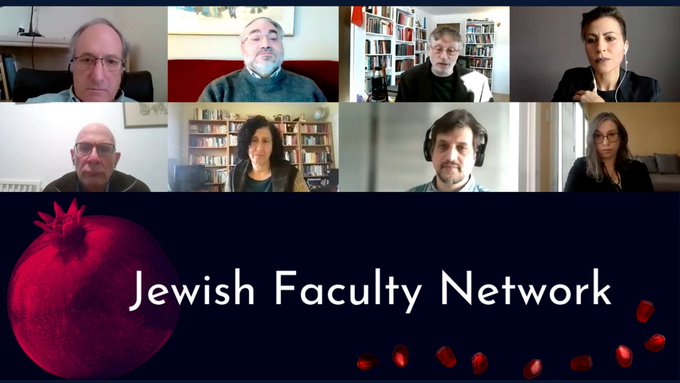A new coalition of Jewish academics has formed to reject the International Holocaust Remembrance Association’s (IHRA) definition of antisemitism, which members say has been used to stifle certain criticisms of Israel, representing an affront to academic freedom.
The impetus for the foundation of the Jewish Faculty Network (JFN) was the Canadian Association of University Teachers’ unanimous vote at its annual council meeting on Nov. 26 to oppose IHRA’s adoption at post-secondary institutions.
Over 170 Jewish faculty at Canadian universities and colleges signed a letter opposing the IHRA definition, the JFN’s website states.
Although the IHRA definition states that “criticism of Israel similar to that leveled against any other country cannot be regarded as antisemitic,” seven of the 11 examples of antisemitism it provides pertain to Israel, including “claiming that the existence of a State of Israel is a racist endeavor.”
The JFN launched publicly on Dec. 9, with a news conference featuring several of its founding members, co-hosted by University of Toronto geographer Deborah Cowen and University of Alberta linguist Robert Kirchner.
Cowen said the coalition is united in its “shared commitment to social justice and academic freedom, recognizing that both are core to the Jewish tradition, as well as our academic scholarship and activism.”
“This entails respecting a diversity of Jewish voices, as well as the views of Palestinian, Arab and Muslim faculty and students,” she said.
UofT anthropologist Alejandro Paz said he heard “different narratives about how the State of Israel was formed” for the first time as an undergraduate at Queen’s University.
“There are many organizations and political leaders in Canada today who want to make it impossible for university and high school students to have the academic freedom to hear… the kinds of criticisms that shocked me as an 18-year-old,” said Paz.
Howard Tzvi Adelman, a Queen’s University historian, said IHRA’s examples represent a “stalking horse for a strategy to silence discourse about Israel and Palestinian rights.”
“These examples do not deal with the real dangers of violent, systemic antisemitism against Jews or Israel, but only with individuals, often speaking at universities,” he said.
Jillian Rogin, a law professor at the University of Windsor, said the dismissal of harsh criticism of Israel as antisemitic runs counter to Jewish traditions.
“Being Jewish means, fundamentally… to question, to debate and to never, ever uncritically accept any authority in any manifestation,” Rogin said her father taught her.
Hebrew University historian Amos Goldberg pointed towards the Trump administration’s use of IHRA as a basis for cracking down on pro-Palestinian speech on university campuses, as well as the definition’s use as a pretext to shut down a 2019 charity race for Gaza in London, U.K., and its use by NGO Monitor to label Israeli human rights group B’tselem as antisemitic.
Through his experiences in the Israeli military, Goldberg said he came to the view that Zionism is a “moral dead end.”
“Nobody has to agree with me about that, but I don’t want anyone to call me an antisemite,” he said.
The Canadian federal government, as well as provincial governments in Ontario and Quebec, have adopted IHRA.
A report by UofT’s Antisemitism Working Group, released earlier this month, recommends against adopting any definition of antisemitism.
Roni Gechtman, an Israeli historian at Halifax’s Mount Saint Vincent University, pointed towards the Jerusalem Declaration on Antisemitism as an alternative to IHRA, which distinguishes between antisemitism and anti-Zionism while recognizing where they can overlap.
Martin Sampson, a spokesperson for the Centre for Israel and Jewish Affairs, which has been one of the foremost Canadian organizations pushing for the adoption of IHRA by various bodies, rejects the notion that it has been, or will be, used to censor pro-Palestinian perspectives.
“[IHRA] enables authorities at all levels to identify antisemitic incidents clearly and effectively in their respective spheres,” Sampson said.
“The ability to identify antisemitism empowers governments and individuals to stand up against it, ensuring it does not take further root in our society.”
